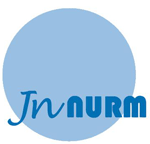Project Closed
Jawaharlal Nehru National Urban Renewal Mission (JNNURM)
 The Mission
The Mission
Mission Statement: The aim is to encourage reforms and fast track planned development of identified cities. Focus is to be on efficiency in urban infrastructure and service delivery mechanisms, community participation, and accountability of ULBs/ Parastatal agencies towards citizens.
Objectives of the Mission
The objectives of the JNNURM are to ensure that the following are achieved in the urban
sector;.
- Focussed attention to integrated development of infrastructure services in cities covered under the Mission;.
- Establishment of linkages between asset-creation and asset-management through a slew of reforms for long-term project sustainability;.
- Ensuring adequate funds to meet the deficiencies in urban infrastructural services;.
- Planned development of identified cities including peri-urban areas, outgrowths and urban corridors leading to dispersed urbanisation;.
- Scale-up delivery of civic amenities and provision of utilities with emphasis on universal access to the urban poor;.
- Special focus on urban renewal programme for the old city areas to reduce congestion; and Provision of basic services to the urban poor including security of tenure at affordable prices, improved housing, water supply and sanitation, and ensuring delivery of other existing universal services of the government for education, health and social security.
Scope of the Mission
The Mission shall comprise two Sub- Missions, namely:
- Sub-Mission for Urban Infrastructure and Governance: This will be administered by the Ministry of Urban Development through the Sub- Mission Directorate for Urban
- Infrastructure and Governance. The main thrust of the Sub-Mission will be on infrastructure projects relating to water supply and sanitation, sewerage, solid waste management, road network, urban transport and redevelopment of old city areas with a view to upgrading infrastructure therein, shifting industrial and commercial establishments to conforming areas, etc.
- Sub-Mission for Basic Services to the Urban Poor: This will be administered by the Ministry of Urban Employment and Poverty Alleviation through the Sub-Mission Directorate for Basic Services to the Urban Poor. The main thrust of the Sub-Mission will be on integrated development of slums through projects for providing shelter, basic services and other related civic amenities with a view to providing utilities to the urban poor
Strategy of the Mission
The objectives of the Mission shall be met through the adoption of the following strategy:
- Preparing City Development Plan: Every city will be expected to formulate a City Development Plan (CDP) indicating policies, programmes and strategies, and financing plans.
- Preparing Projects: The CDP would facilitate identification of projects. The Urban Local Bodies (ULBs) / parastatal agencies will be required to prepare Detailed Project Reports (DPRs) for undertaking projects in the identified spheres. It is essential that projects are planned in a manner that optimises the life-cycle cost of projects. The life-cycle cost of a project would cover the capital outlays and the attendant O&M costs to ensure that assets are in good working condition. A revolving fund would be created to meet the O&M requirements of assets created, over the planning horizon. In order to seek JNNURM assistance, projects would need to be developed in a manner that would ensure and demonstrate optimisation of the life-cycle costs over the planning horizon of the project.
- Release and Leveraging of Funds: It is expected that the JNNURM assistance would serve to catalyse the flow of investment into the urban infrastructure sector across the country. Funds from the Central and State Government will flow directly to the nodal agency designated by the State, as grants-in-aid. The funds for identified projects across cities would be disbursed to the ULB/Parastatal agency through the designated State Level Nodal Agency (SLNA) as soft loan or grant-cum-loan or grant. The SLNA / ULBs in turn would leverage additional resources from other sources.
- Incorporating Private Sector Efficiencies: In order to optimise the life-cycle costs over the planning horizon, private sector efficiencies can be inducted in development, management, implementation and financing of projects, through Public Private Partnership (PPP) arrangements.
Duration of the Mission
The duration of the Mission would be seven years beginning from the year 2005-06. Evaluation of the experience of implementation of the Mission would be undertaken before the commencement of Eleventh Five Year Plan and if necessary, the program calibrated suitably.
Expected Outcomes of the JNNURM
On completion of the Mission period, it is expected that ULBs and parastatal agencies will have achieved the following:
- Modern and transparent budgeting, accounting, financial management systems, designed and adopted for all urban service and governance functions
- City-wide framework for planning and governance will be established and become operational
- All urban residents will be able to obtain access to a basic level of urban services
- Financially self-sustaining agencies for urban governance and service delivery will be established, through reforms to major revenue instruments
- Local services and governance will be conducted in a manner that is transparent and accountable to citizens
- E-governance applications will be introduced in core functions of ULBs/Parastatal resulting in reduced cost and time of service delivery processes
